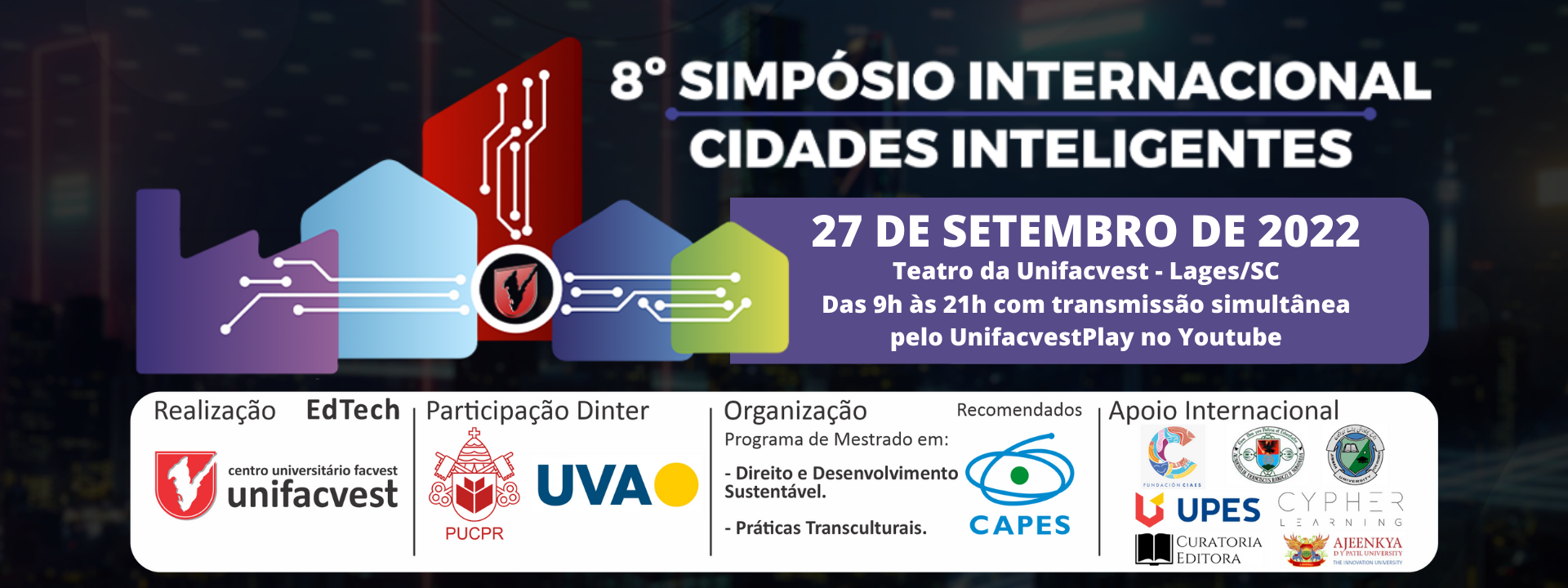|
|
|
CIDADES INTELIGENTES: DIREITOS E GARANTIAS DOS PORTADORES DE DEFICIÊNCIA VISUAL
|
|
SOUSA, Maria Eduarda Colombo., Graduanda em Educação Inclusiva, Acadêmica FONTOURA, Ana Paula Barros Barbosa , Graduanda em Educação Inclusiva, Acadêmica MELO, Fabiana Carbenera Malinverni de, Graduada em Pedagogia. Especialista em Dificuldades de aprendizagem, Libras e Informática na Educação. Mestre em Ciência da Computação com ênfase em Informática na Educação., Professora das disciplinas de: Libras, TEA, Didática, Escola e Sociedade no curso de Educação Especial da Unifacvest. , , , , |
|
RESUMO |
|
Você já se perguntou como as cidades poderiam melhorar para acolher de forma decente os deficientes visuais e como isso facilitaria o dia a dia dessas pessoas? O Brasil tem mais de 6,5 milhões de pessoas com deficiência visual, são milhões de pessoas que todos os dias sofrem para realizar atividades simples como locomoção, comunicação e inclusão nas escolas e no mercado de trabalho. O objetivo dessa pesquisa é identificar quais direitos os deficientes visuais possuem e através da pesquisa bibliográfica foi possível saber que desde 2015 foi sancionado a lei 13.146 onde garantiu os direitos das pessoas com deficiência. Através da pesquisa foi reconhecido que para as leis realmente funcionarem é fundamental que todos os responsáveis por órgãos públicos como políticos, arquitetos, engenheiros e todas as pessoas envolvidas em um espaço público tomem medidas realmente efetivas. Para melhorar a realidade dos deficientes visuais é necessário ter adaptações nas cidades para que se tornem inteligentes e acessíveis como: Piso tátil (sem nenhum tipo de obstáculo nas áreas de circulação), mapas táteis, livre arbítrio de deficientes visuais com seus cães-guias, orientações em braile em todos os lugares de possível acesso dos deficientes visuais e sinais sonoros em vias públicas da cidade (semáforos, saídas de garagens e etc.). Já nas escolas e áreas de trabalho é importante que possua vagas garantidas, professores de apoio, grandes variedades de livros em braile e computadores software com sintetizadores de voz. |
| Palavras Chave: Deficiência. Visual. Direitos. |
|
SMART CITIES: RIGHTS AND GUARANTEES OF THE VISUALLY IMPAIRE
|
|
SOUSA, Maria Eduarda Colombo., Undergraduate Student in Inclusive Education, Student FONTOURA, Ana Paula Barros Barbosa , Undergraduate Student in Inclusive Education, Student MELO, Fabiana Carbenera Malinverni de, Graduated in Pedagogy. Specialist in Learning Disabilities, Libras and Informatics in Education. Master of Science in Computing with an emphasis on Informatics in Education., Teacher of the disciplines of: Libras, TEA, Didactics, School and Society in the Special Education course at Unifacvest. , , , , |
|
ABSTRACT |
|
Have you ever wondered how cities could improve to decently accommodate the visually impaired and how this would make their daily lives easier? Brazil has more than 6.5 million people with visual impairments, millions of people who suffer every day to perform simple activities such as locomotion, communication and inclusion in schools and in the job market. The objective of this research is to identify which rights the visually impaired have and through the bibliographic research it was possible to know that since 2015 the law 13,146 was enacted, which guaranteed the rights of people with disabilities. Through the research it was recognized that for the laws to really work it is essential that all those responsible for public bodies such as politicians, architects, engineers and all people involved in a public space take really effective measures. To improve the reality of the visually impaired, it is necessary to have adaptations in cities so that they become intelligent and accessible, such as: Tactile flooring (without any type of obstacle in circulation areas), tactile maps, free will of the visually impaired with their guide dogs, guidelines in Braille in all places with possible access for the visually impaired and sound signals on public roads in the city (traffic lights, garage exits, etc.). In schools and work areas, it is important to have guaranteed places, support teachers, a wide variety of books in Braille and software computers with speech synthesizers. |
| Key Words: Disability. Visual. rights. |
|
|
|
Resumo ID 1128, enviado por: Maria Eduarda Colombo Sousa, Da instituição: Unifacvest . |
